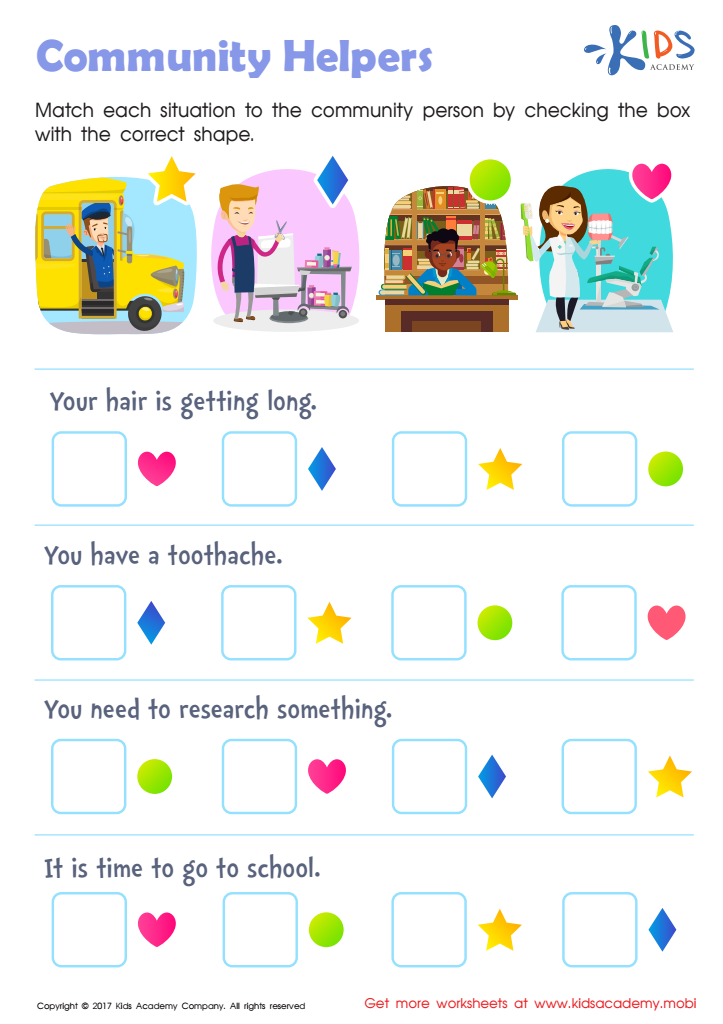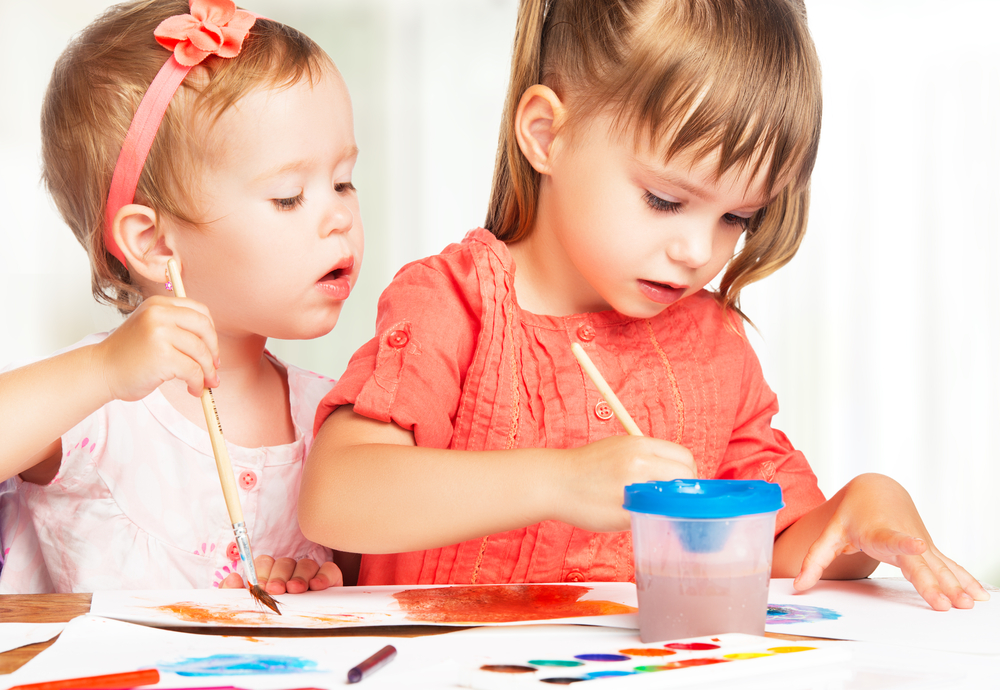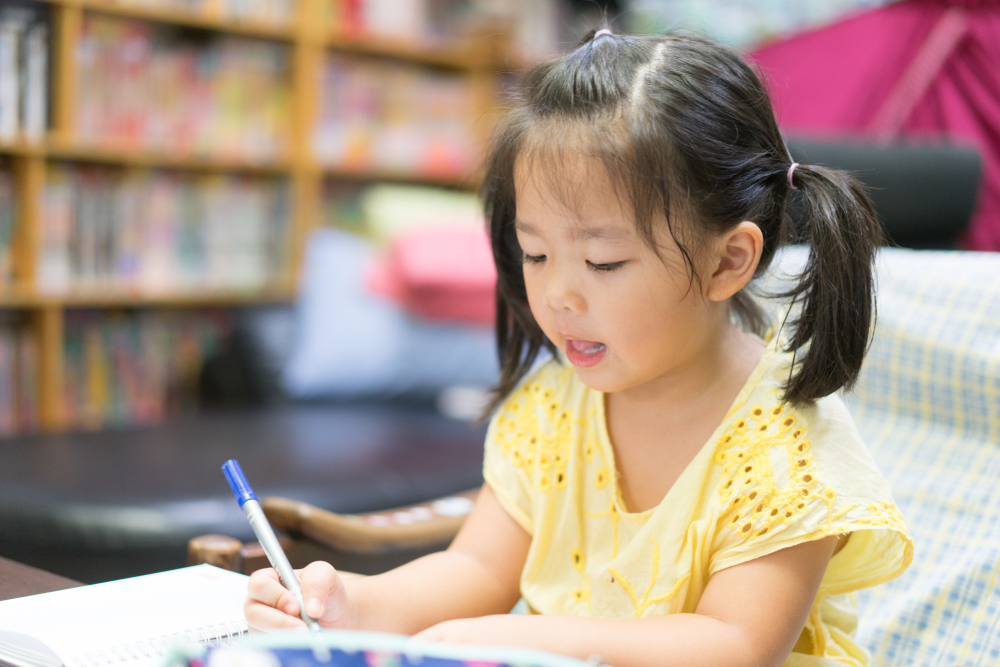Understanding community roles Worksheets for Ages 6-7
3 filtered results
-
From - To
Dive into the world of community roles with our engaging worksheets designed for children aged 6-7! These thoughtfully crafted activities help young learners explore various community occupations, fostering an understanding of how people contribute to society. Through interactive and colorful exercises, kids will identify different roles, such as teachers, doctors, and firefighters, while developing critical thinking and social awareness. Ideal for home or classroom use, these worksheets promote discussion, creativity, and teamwork. It's a fun and educational way to introduce children to the diverse individuals that help shape their community. Empower your child’s learning and curiosity today!
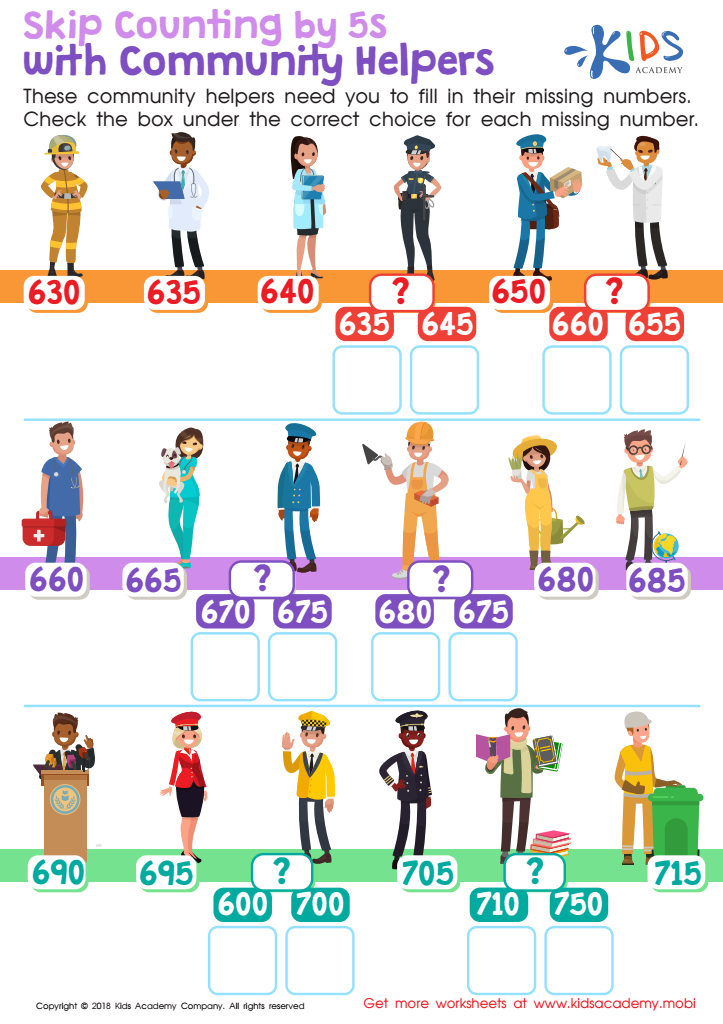

Skip Counting by 5s With Community Helpers Worksheet
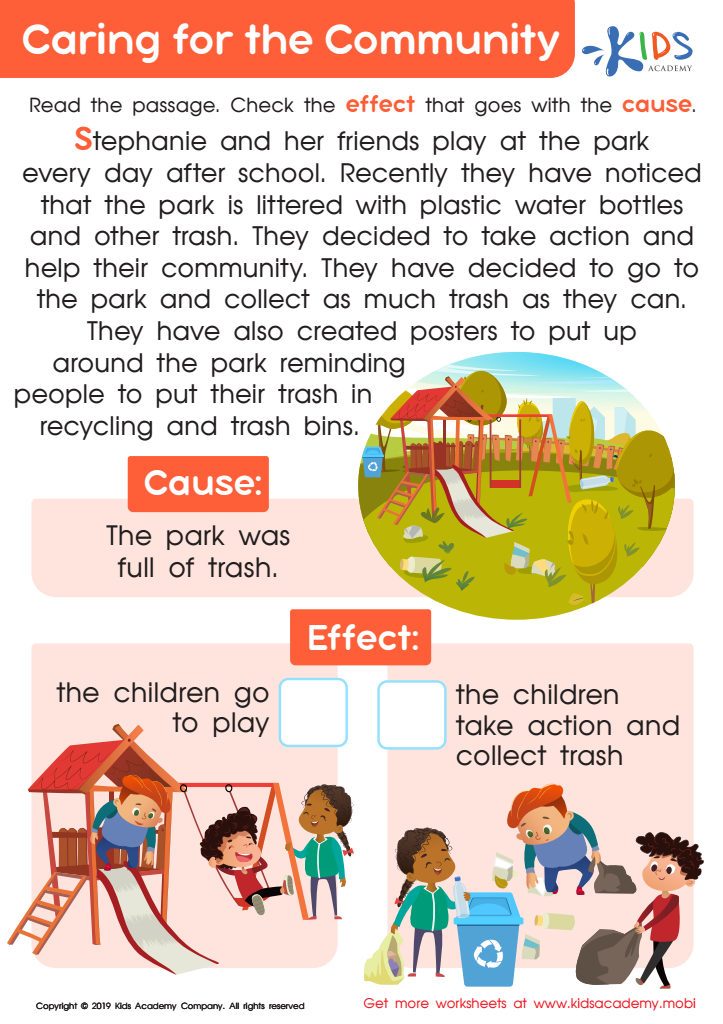

Caring for the Community Worksheet
Understanding community roles is fundamental for children ages 6-7 as it helps them develop a sense of belonging and responsibility within their environment. At this age, children are naturally curious about the world around them, and learning about various community roles becomes a pathway to understanding how society functions. Parents and teachers should care because such knowledge cultivates respect for different professions and the diverse contributions individuals make to community life.
By engaging children in discussions and activities about community roles—like those of firefighters, teachers, doctors, and artists—adults can help them recognize that each role has a unique importance, fostering empathy and appreciation. Moreover, this understanding can encourage children to think about their own aspirations and how they might contribute positively to their communities as they grow.
Incorporating lessons about community roles also enhances critical thinking skills and teamwork as children engage in role-playing or cooperative projects. Ultimately, helping children understand their community and its roles not only equips them with social awareness but also lays a foundation for active, informed citizenship. It nurtures a future generation that values collaboration and recognizes the interconnectedness of their actions with those around them.
 Assign to My Students
Assign to My Students

